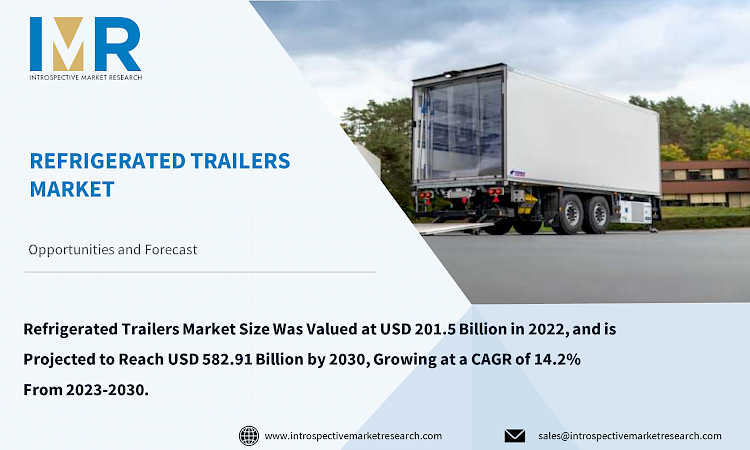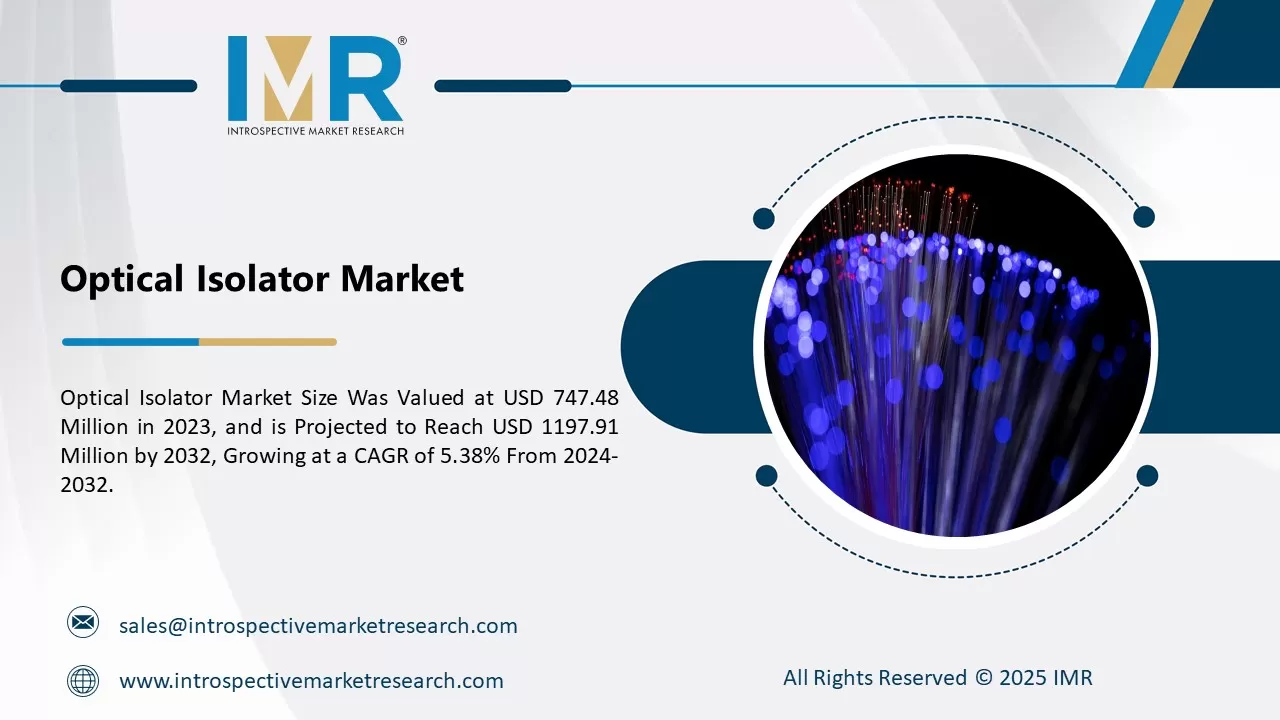Market Overview:
Refrigerated Trailers Market Size Was Valued at USD 201.5 Billion in 2022, and is Projected to Reach USD 582.91 Billion by 2030, Growing at a CAGR of 14.2% From 2023-2030.
Refrigerated trailers, or reefers, are specialized transport units equipped with refrigeration units at the front, enabling the transportation of temperature-sensitive goods over extended distances. These trailers are crucial for maintaining a consistent temperature range, particularly in regions with volatile weather conditions like rapid temperature fluctuations.
Versatility is a key advantage for Refrigerated trailers, as refrigerated trailers can be used for both road and rail transport. Despite higher transportation costs, advancements in technology and price control are enabling smaller companies with limited production capacity to utilize these trailers for bulk transportation. Third-party logistics companies worldwide consider refrigerated trailers vital assets, continuously upgrading them to meet consumers' ever-growing demands and enhance operational efficiency.
Presently, the refrigerated trailers market is witnessing substantial growth driven by the rising demand for perishable goods transportation. With increasing consumer appeal and effective marketing strategies, the demand for reliable and efficient cold storage logistics is on the rise. Companies are investing significantly in product development to cater to this growing need. These trailers come in two types, offering negative and positive temperature ranges for frozen and chilled products, respectively.
Top Key Players Covered In The Refrigerated Trailers Market:
- Utility Trailer Manufacturing Company (US)
- Schmitz Cargobull AG (Germany)
- Wabash National Corporation (US)
- Great Dane LLC (US)
- Fahrzeugwerk Bernard KRONE GmbH (Germany)
- K?gel Trailer GmbH & Co. KG (Germany), and Other Major Players
Market Dynamics and Factors:
The convenience of transporting perishable food items across the globe using refrigerated trailers has led to a significant increase in demand. Global consumption of processed and frozen vegetables reached 87.2 billion kilograms in 2019 and rose to approximately 98.4 billion kilograms in 2020. The continuous growth in the number of fast-food restaurants in the United States, from about 175,000 in 2018 to around 201,550 in 2020, has driven the need for increased refrigerated transport, further boosting the refrigerated trailer market. The increasing demand for eco-friendly and energy-efficient refrigerated trailers presents a significant opportunity for manufacturers to develop and market sustainable solutions. With growing environmental concerns, businesses and consumers alike are seeking greener alternatives. Offering trailers with improved energy efficiency and reduced carbon emissions can give companies a competitive edge and tap into the expanding market for environmentally conscious transportation solutions.
The Refrigerated Trailers Market Report Highlight:
- By Product Type, The Chilled Food segment is expected to dominate the Refrigerated Trailers Market in the future due to its significant growth in demand from restaurants, hotels, and consumers seeking convenient and fresh food options. With increasing sales of chilled vegetables (up to 19.5%) and fruits (8.6%) in recent years, there is a rising need for refrigerated trailers to transport these perishable goods.
- By End Users, The Fruits & Vegetables Fruits and vegetables segment is expected to dominate the Refrigerated Trailers Market are consumed in large quantities globally and have a shorter shelf life compared to other perishables, necessitating efficient and reliable cold chain transportation.
- Asia Pacific Dominates the refrigerated trailer market, and is driven by its high population concentration, with China and India being the most demanding countries for such trailers. Asian nations account for over 40% of global storage capacity, expected to grow further due to the rising demand for several temperature-sensitive products. The increase in food demand and investment in efficient cold storage logistics will contribute to the region's market expansion.
Key Industry Development:
- In February 2023, TIP Group launched refrigerated trailers with battery and solar-powered. This group has launched two major innovations for the industry: the ?E-reefer?, using the net to power its battery, and the AxlePower, using the reefer?s lost energy as a power source for its refrigeration unit.
- In April 2023, Leanpath: Introduced "Leanpath Harmony," a cloud-based system for their smart bins, enabling real-time waste data analysis and performance insights, empowering businesses to optimize waste management strategies.
The Refrigerated Trailers Market Segmentation:
By Product Type
- Frozen Food
- Chilled Food
By End Users
- Dairy Products
- Fruits & Vegetables
- Meat & Sea Food
- Other
For this report, Introspective Market Research has segmented the Refrigerated Trailers Market based on region:
Regional Outlook (Revenue in USD Million; Volume in Units, 2023-2030)
North America
- The U.S.
- Canada
- Mexico
Eastern Europe
- Russia
- Bulgaria
- The Czech Republic
- Hungary
- Poland
- Romania
- Rest of Eastern Europe
Western Europe
- Germany
- UK
- France
- Netherlands
- Italy
- Spain
- Rest of Western Europe
Asia Pacific
- China
- India
- Japan
- Singapore
- Australia
- New-Zealand
- Rest of APAC
Middle East & Africa
- Turkey
- Saudi Arabia
- Qatar
- UAE
- Israel
- South Africa
South America
- Brazil
- Argentina
- Rest of SA





